Attending the closing session were Party Central Committee members: Le Quoc Minh, Editor-in-Chief of Nhan Dan Newspaper, Deputy Head of the Central Propaganda and Mass Mobilization Commission, President of the Vietnam Journalists Association ; Hoang Trung Dung, Editor-in-Chief of Communist Magazine; representatives of the Vietnam Journalists Association, press management agencies, departments, sectors, enterprises, central and local news agencies and newspapers.
In his closing speech at the Forum, comrade Le Quoc Minh affirmed: After 10 in-depth discussion sessions, the National Press Forum 2025 was a great success. The thematic discussion sessions were organized methodically and scientifically , with highly topical topics and rich content, attracting great attention from the press and the public.
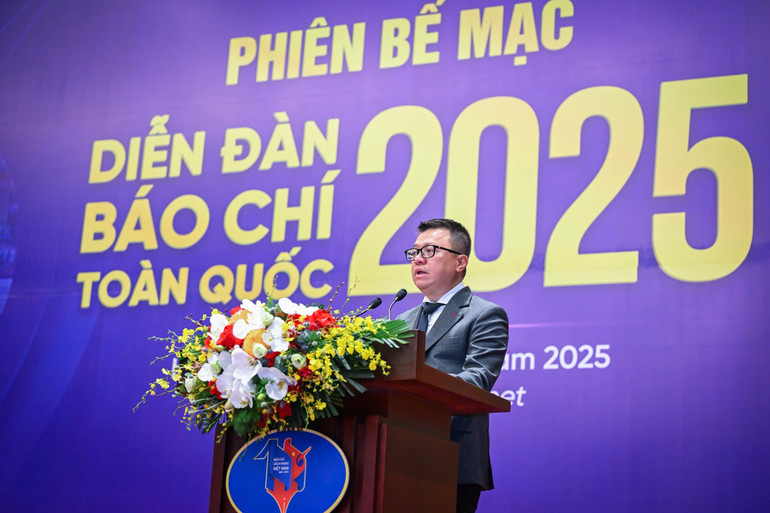
According to the Chairman of the Vietnam Journalists Association, in the context of the world changing strongly under the impact of digital technology , artificial intelligence and globalization, Vietnamese journalism is facing unprecedented challenges, while opening up great opportunities if it knows how to proactively adapt and innovate.
"The most essential thing right now in the context of AI prevailing and creating a huge amount of content, in order to preserve its existence and develop sustainably, the only solution is for the press to focus on content quality and core values, the press must redefine its mission, not to report the fastest news, but to bring the deepest and most reliable value," emphasized comrade Le Quoc Minh.
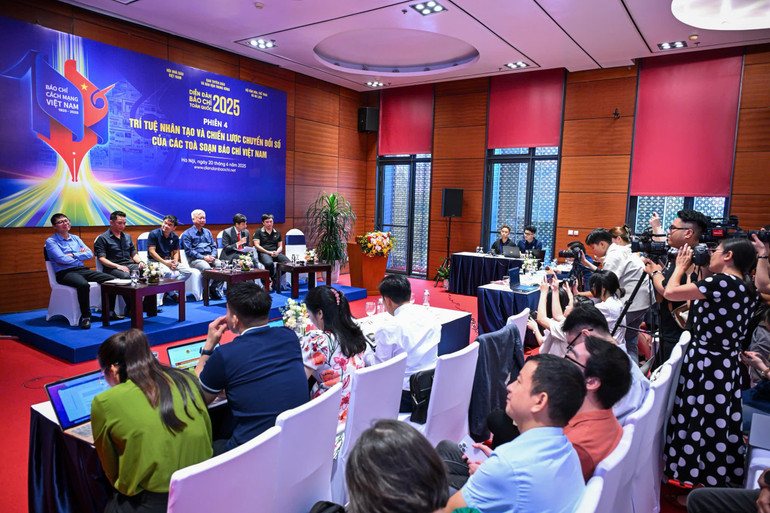
Summarizing the highlights as well as specific conclusions for each discussion session, he said that in the first session with the theme of Vietnamese Press in the New Era: Vision for Creating Development Space , delegates and experts discussed extensively the challenges, opportunities as well as key solutions for sustainable development of Vietnamese press.
At the discussion session, experts proposed solutions for journalism in the new era, focusing on upholding revolutionary ideals, innovating production models, improving professional quality, and especially enhancing content quality and increasing credibility to attract investment from units seeking valuable media channels.
The press must change, must become a creator and solution maker, the press must become a center of connection and interaction, the press must change from content to form. Change the form to become a platform, an open forum, increasing public participation.
At the discussion session “Female leaders in journalism: Women’s voices in news management” , journalists looked back at the century-long journey of development of Vietnam’s revolutionary journalism, clearly seeing the presence of female journalists, always present, quietly but persistently, but sometimes not given due attention.
The speakers also discussed management capacity, the journey of overcoming prejudice, and the necessary conditions to discover, nurture and support a new generation of female journalism leaders - those who not only know how to write, but also know how to orient strategy, handle risks and nurture newsroom culture in the digital age.
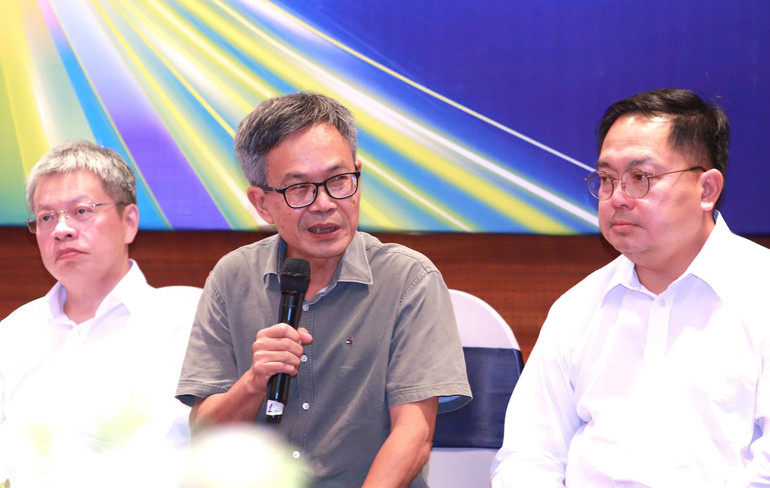
The third session, titled "Winning Gen Z Readers: Decoding the Formula for Success," provided in-depth insights and valuable analysis on how news organizations can reach, attract and retain a dynamic young audience, while exploring breakthrough strategies to create content that resonates with Gen Z's trends and interests in the digital age.
The speakers proposed many practical solutions, emphasizing that Gen Z is a generation of conscious consumers who value "authenticity" in brands, services, and experiences. When Gen Z has a good feeling, they tend to trust and consume the products of the editorial office, thereby forming audience loyalty - a basic characteristic of the general press audience. In addition, there is also the need to train future journalists and media professionals to meet the new context.
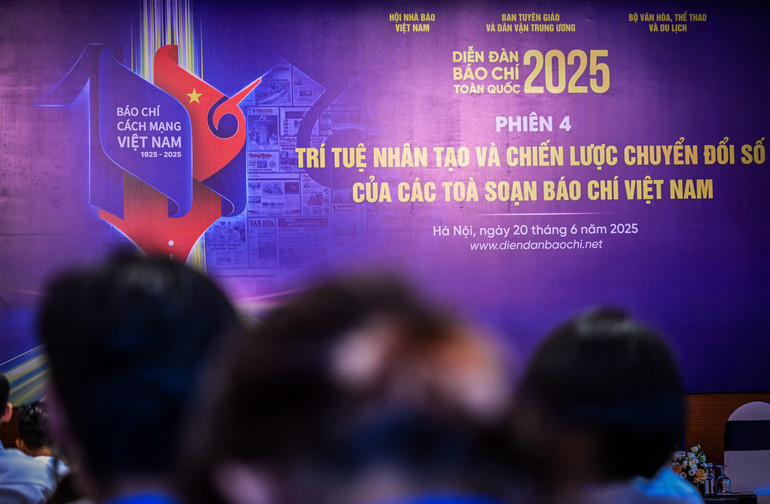
The discussion session with the theme "Artificial Intelligence and Digital Transformation Strategy of Vietnamese Press Offices" stated: Artificial Intelligence (AI) is opening up unprecedented opportunities for the Vietnamese press and media industry, from improving content quality to increasing social impact, helping press offices adapt to the digital age and meet the public's increasing information needs.
However, the speakers also affirmed that it is impossible to apply the Western AI model, but must adapt to the behavior of Vietnamese readers, the Vietnamese cultural context and the legal environment in Vietnam. When properly "tailored", AI will be a powerful assistant to help the newsroom personalize content, optimize interactions and increase the effectiveness of marketing communications.
Session 5 with the theme: Revenue in the digital age: Not just advertising, newspapers must sell more! , the speakers affirmed that now, a newsroom is not only facing the problem of "writing well" or "working quickly", but must answer a bigger question: The press is the "guide" for society in terms of information, awareness, and public opinion orientation, but in the digital age, that role is being challenged by a very practical question: How does the press live? Traditional advertising is declining. Media services are potentially risky. Events are easily commercialized. Fees have not yet reached the level. The state budget is necessary but cannot be the only support. How can we have enough money for the newspaper to operate? And further: Can the press stand on its own merits without being dependent?
The discussion session “Adapting Television in the New Media Environment” also attracted public attention. This is one of the most topical issues for television agencies nationwide. In the new media environment, television is facing many changes and adaptations to survive and develop.
Discussing solutions and initiatives of news agencies in the new media environment, the guests shared initiatives of domestic and foreign television stations to adapt to the new environment, and regain the public while maintaining their position and revenue. From there, the speakers and guests came to the conclusion that television is still an important channel, but needs to be combined with digital platforms to optimize efficiency and meet the needs of the audience, even having specialized programs aimed at each age group and audience.
At the session "What mechanism to develop radio in the current period", the speakers enthusiastically discussed and gave frank opinions on the current situation and prospects of this type of journalism. In order for radio to adapt to the new trend, the speakers said that this type of journalism must innovate both in content and form, in which the core lies in the thinking of the professional team.
The speakers stated that when given the right conditions to develop and the opportunity to assert themselves in their professional fields, the radio team will have the foundation to make a breakthrough, contributing to bringing this type of journalism in line with modern trends and better meeting the needs of the public.
Today’s readers not only want to read, listen, and watch, but also want to feel and connect with information in a more personal way. To overcome all the limitations of space and time, modern journalism faces a great challenge: how to make information not only the latest, most accurate but also suitable for each individual?
The discussion session Personalizing content to retain loyal readers contributed to clarifying the above issue as well as the concept of “content personalization” and practices in newsrooms in Vietnam, the current situation as well as prospects and challenges. In the context of the digital age explosion, information is circulated at the speed of light, and public needs are constantly changing.
At the discussion session Data is the root of the modern newsroom , the speakers affirmed that in the digital age, data is not just numbers – but the heartbeat of the modern newsroom. Every click, time spent on an article, or most searched topic… all reflect the needs and news consumption habits of readers.
With data, journalism is transforming from “mass production” to “tailored content”. Advanced newsrooms around the world and in Vietnam are leveraging the power of data to improve the quality and effectiveness of content.
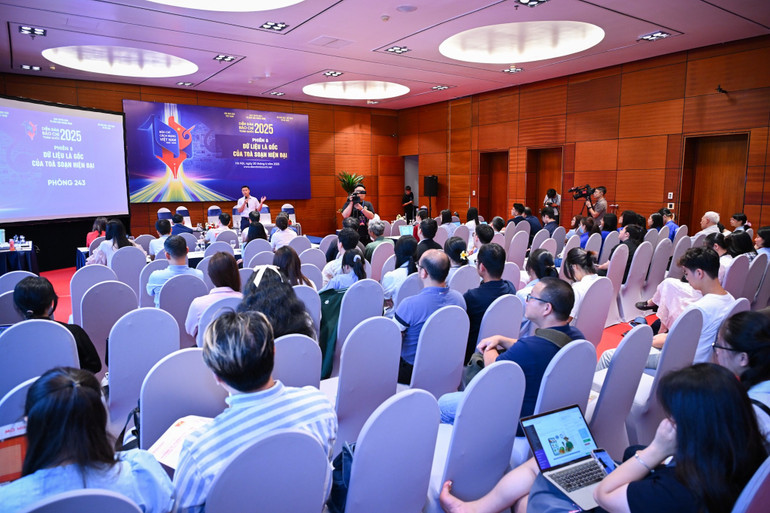
Data is not only a content-shaping tool, it is also a strategic tool in the journalism economy. Dynamic paywalls are being adopted by many newsrooms, thanks to their ability to track reading history and predict when readers are ready to subscribe. Metrics such as reading time, clicks, conversion rates, etc. are now aggregated in intuitive dashboards, helping editorial teams make timely and accurate decisions.
But along with the opportunities, data also poses challenges: how to balance personalization and privacy? How to ensure the accuracy of AI without obscuring the role of humans in the news production process?
In particular, the 10th discussion session of the Forum with the hot topic "Resolution 18 and the requirement to innovate press personnel" attracted a lot of attention from the public and professionals. Resolution 18, with the goal of streamlining the political system, required the press to be "leaner" to be "stronger". However, streamlining is not just about merging, reducing the number or cutting staff. It is also a story about how we streamline to optimize resources, reduce waste and improve operational efficiency. This is an opportunity for press agencies to innovate their organizational models, build convergent newsrooms, modernize work processes... And this is also the time when training institutions must innovate their training methods for students from school...
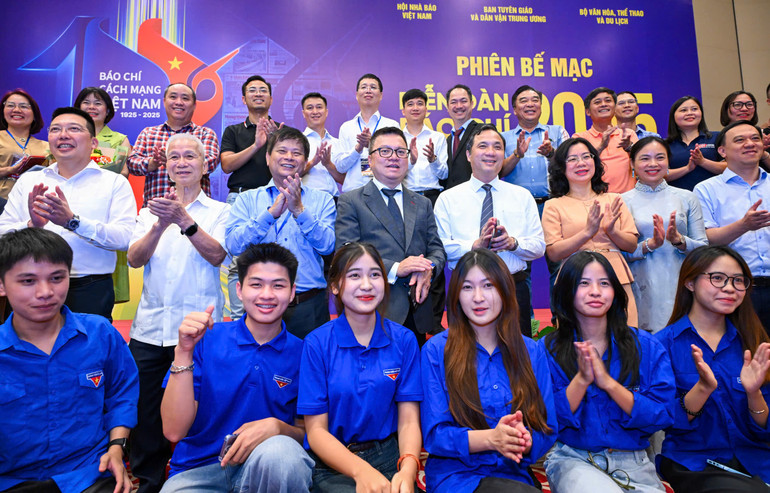
"With careful preparation from the Organizing Committee, from the efforts of hundreds of speakers, media experts, and famous journalists, the 2nd National Press Forum 2025 was a great success, an important highlight, opening up creative space, to elevate the strategy for Vietnamese revolutionary journalism on the journey to rise up with the nation, worthy of professional, humane, and modern journalism," affirmed comrade Le Quoc Minh.
Source: https://nhandan.vn/bao-chi-phai-tai-dinh-nghia-su-menh-la-mang-lai-gia-tri-sau-sac-dang-tin-cay-nhat-post888410.html





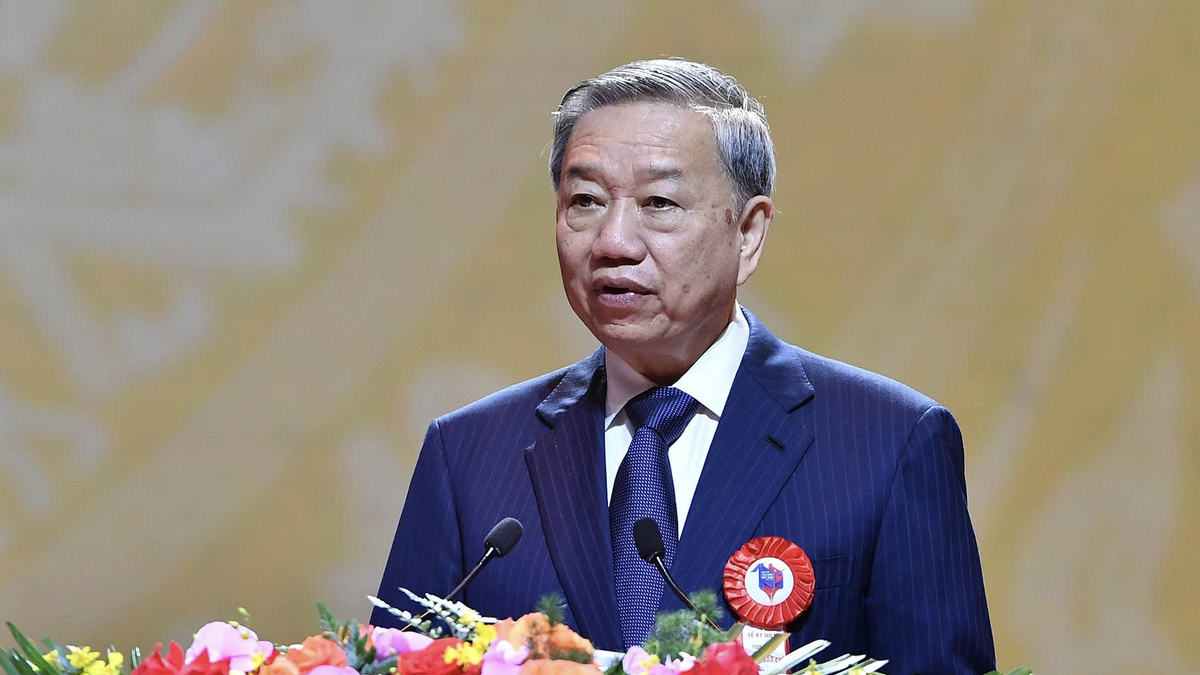




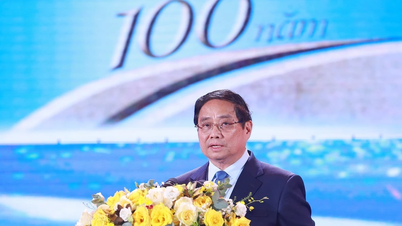







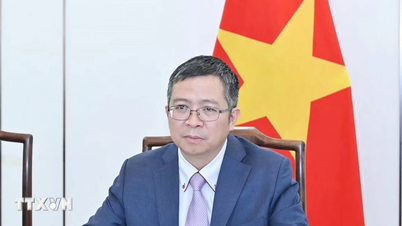




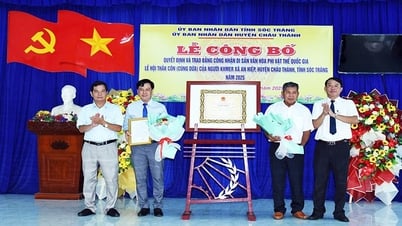
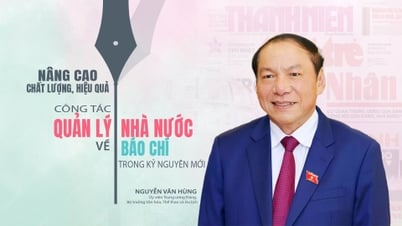



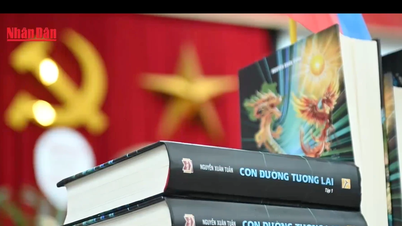
![[Photo] Central Propaganda and Mass Mobilization Department meets with exemplary journalists](https://vphoto.vietnam.vn/thumb/1200x675/vietnam/resource/IMAGE/2025/6/21/9509840458074c03a5831541450d39f8)



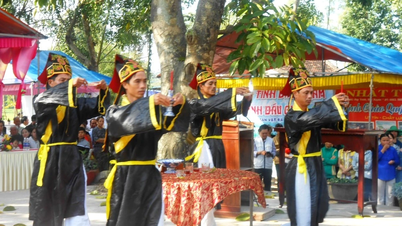

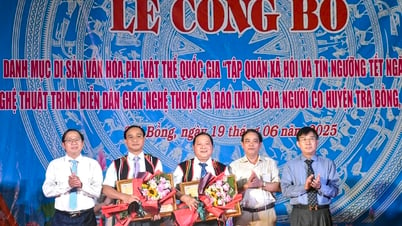




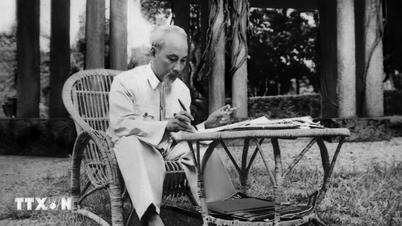
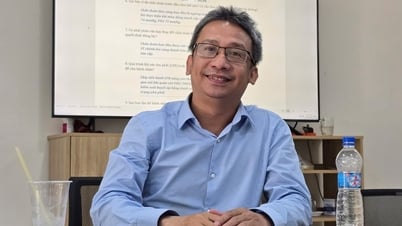


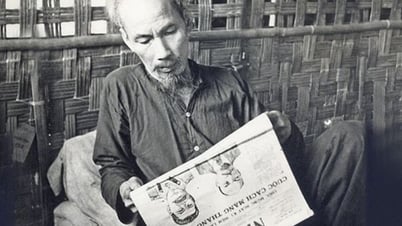





![[Maritime News] Wan Hai Lines invests $150 million to buy 48,000 containers](https://vphoto.vietnam.vn/thumb/402x226/vietnam/resource/IMAGE/2025/6/20/c945a62aff624b4bb5c25e67e9bcc1cb)


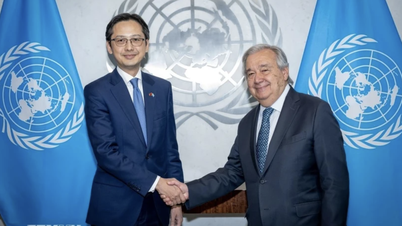
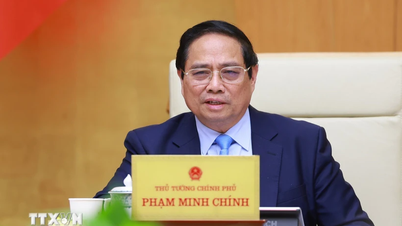







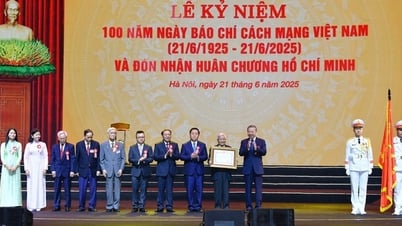
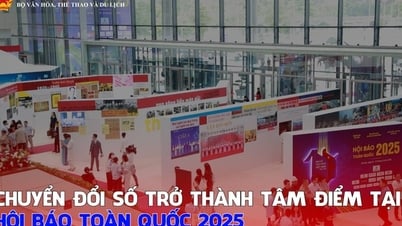
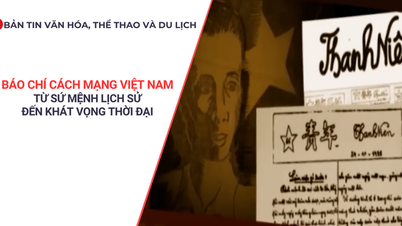
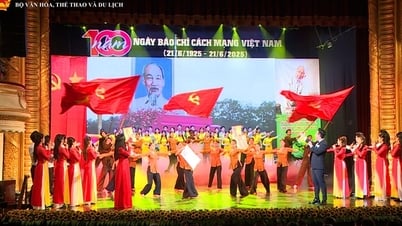
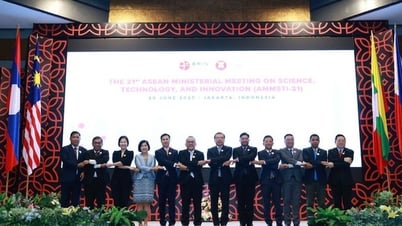

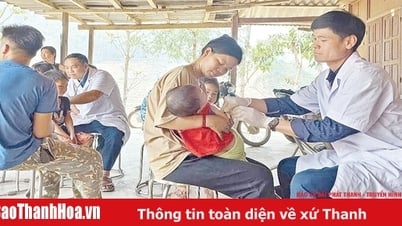

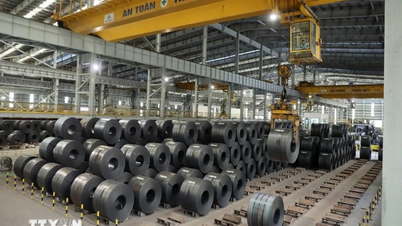
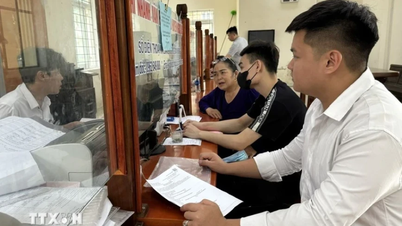
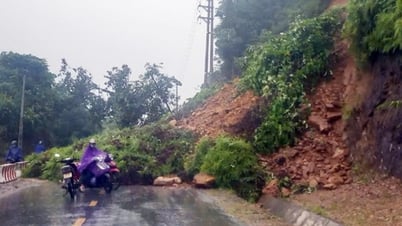

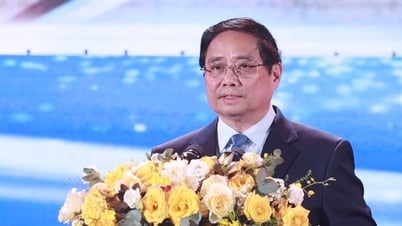











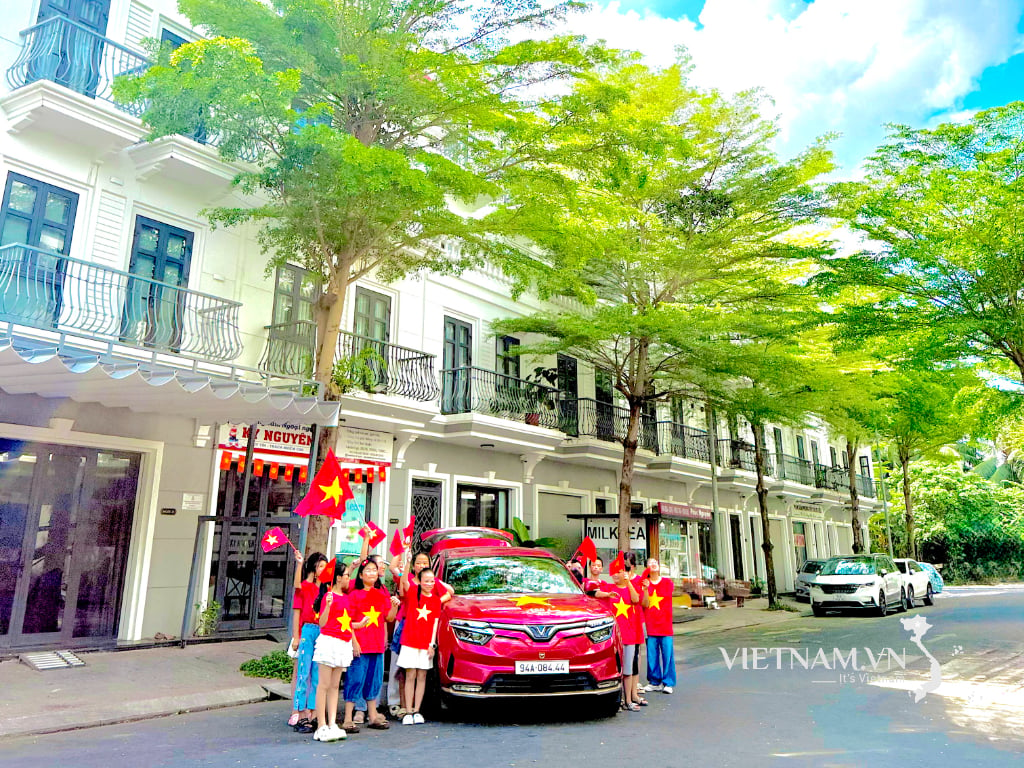

Comment (0)